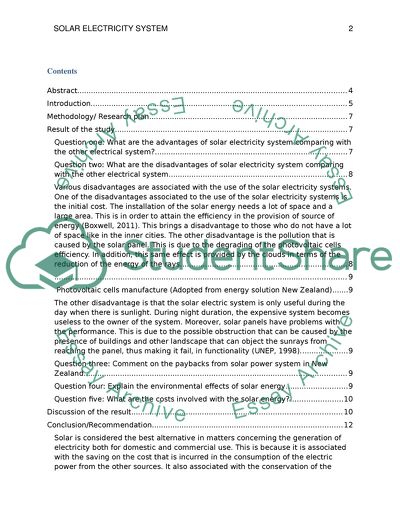Cite this document
(Advantages and Disadvantages of Solar Electricity System In New Coursework Example | Topics and Well Written Essays - 2000 words, n.d.)
Advantages and Disadvantages of Solar Electricity System In New Coursework Example | Topics and Well Written Essays - 2000 words. https://studentshare.org/engineering-and-construction/1769360-what-the-advantages-and-disadvantages-of-solar-electrecity-system-in-new-zealand
Advantages and Disadvantages of Solar Electricity System In New Coursework Example | Topics and Well Written Essays - 2000 words. https://studentshare.org/engineering-and-construction/1769360-what-the-advantages-and-disadvantages-of-solar-electrecity-system-in-new-zealand
(Advantages and Disadvantages of Solar Electricity System In New Coursework Example | Topics and Well Written Essays - 2000 Words)
Advantages and Disadvantages of Solar Electricity System In New Coursework Example | Topics and Well Written Essays - 2000 Words. https://studentshare.org/engineering-and-construction/1769360-what-the-advantages-and-disadvantages-of-solar-electrecity-system-in-new-zealand.
Advantages and Disadvantages of Solar Electricity System In New Coursework Example | Topics and Well Written Essays - 2000 Words. https://studentshare.org/engineering-and-construction/1769360-what-the-advantages-and-disadvantages-of-solar-electrecity-system-in-new-zealand.
“Advantages and Disadvantages of Solar Electricity System In New Coursework Example | Topics and Well Written Essays - 2000 Words”. https://studentshare.org/engineering-and-construction/1769360-what-the-advantages-and-disadvantages-of-solar-electrecity-system-in-new-zealand.


